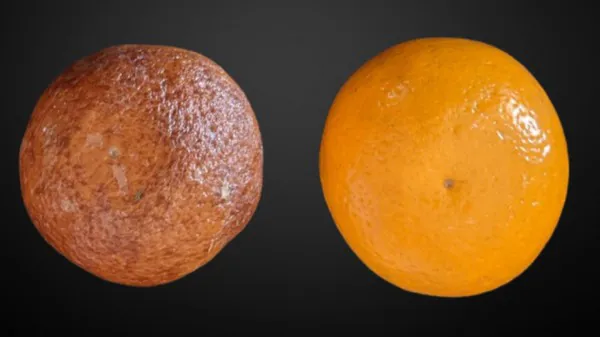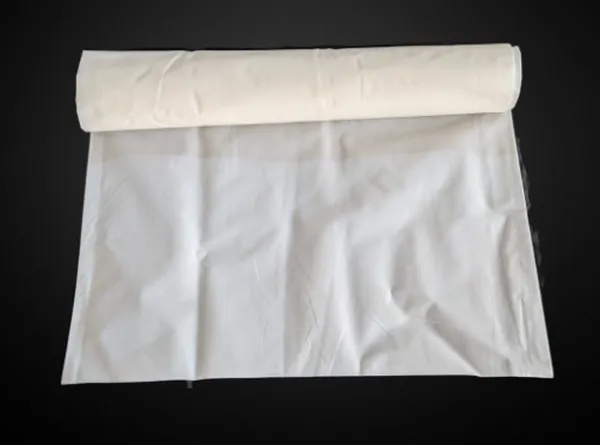Given the pressures today’s supply chain is under, produce growers and shippers are generally on the lookout for products that will help protect produce. These products need to be sustainable and will hopefully even extend the life of that produce item. All of this was in mind as a new product to the marketplace was being designed--Peelon-Fresh bags, a temperature-resistant bag that is also biodegradable and home compostable.
The patented Peelon formula makes it so that the produce it surrounds retains the moisture inside to help extend the shelf life and keep product fresh. “We were able to nano-encapsulate our formula into these tiny active, biodegradable pellets that can be molded into any shape, size or form needed,” says Andres Diaz, co-founder and chief marketing officer for Peelon.
 The orange on the left was left at room temperature for 12 days; on the right, also left 12 days but with Peelon.
The orange on the left was left at room temperature for 12 days; on the right, also left 12 days but with Peelon.
Helping curb food waste
The Peelon formula was developed by Dr. Taraka Ramji Moturu and Dr. Ravi Ummidi, plant scientists who are also committed to tackling the problem of food waste. “They have always believed that the natural world holds the key to solving many of our most pressing challenges,” says Diaz. The product had been in development for several years and was brought to market at the start of 2021.
Predating the bags’ development was a spray solution, Peelon-Pro, which was designed to extend the shelf-life of fresh produce. “However, as we listened to feedback from customers, conducted market research and navigated the complex world of regulatory approvals, we realized this approach wasn't the most cost effective solution,” Diaz says. “Investing in coating solutions is more capital-intensive and instead customers can invest in a more affordable bio-plastic that has the same utility.”
The company then moved towards developing Peelon-Fresh biodegradable films which proved to be more cost-effective but also opened a wider market for adoption. “While we still provide Peelon-Pro, our focus now is on driving the adoption of Peelon-Fresh,” says Diaz.
 After Peelon-Pro, the company moved towards developing Peelon-Fresh biodegradable films which proved to be more cost-effective but also opened a wider market for adoption.
After Peelon-Pro, the company moved towards developing Peelon-Fresh biodegradable films which proved to be more cost-effective but also opened a wider market for adoption.
B2B usage
So who would use these bags? The product is being marketed as an alternative to plastic usage from the business-to-business perspective--it replaces the current plastics used by the growers and distributors. Along with potentially cutting costs and reducing waste in an industry with sizeable plastic use, it could also open up new business opportunities for growers and shippers, says Diaz. “With these bags, they could access new markets that were previously out of reach due to logistical and financial challenges.”
The bags have been tested on more than 40 different types of commodities including a variety of vegetables, citrus, tree fruit, tropical fruit such as avocados, bananas and mangos, stone fruit, grapes, berries and more. “The bags have also paved the way to expand our solution into the more difficult product categories such as meat, fish, cheese, etc.,” adds Diaz. The company also continues to do pilot trials which are a more cost-effective option for companies interested in testing Peelon products.
 For more information:
For more information:
Andres Diaz
Peelon
[email protected]
https://www.peelon.co/
